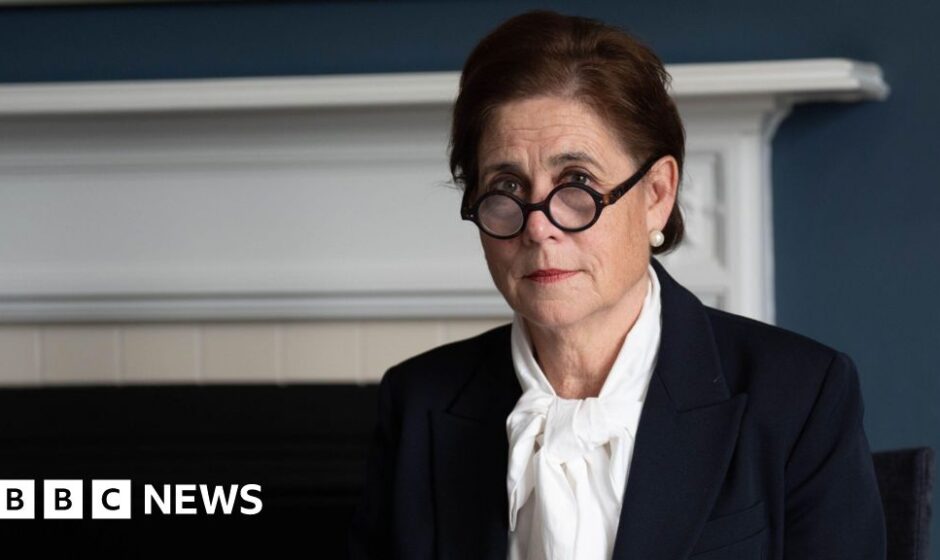Health correspondent, BBC East
BBC News, Essex
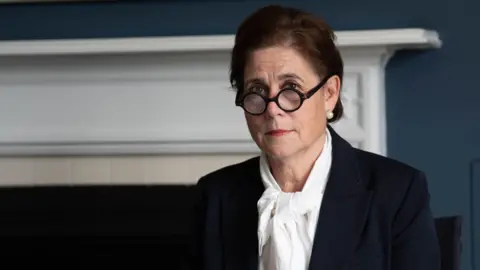 PA Media
PA MediaThe chair of England’s first public inquiry into mental health deaths vowed to “seek out the truth” – despite difficulties getting documents from the NHS.
The first key evidence sessions in the Lampard Inquiry – examining more than 2,000 deaths at NHS inpatient units in Essex between 2000 and 2023 – have begun in London.
Baroness Lampard said although the hearing was “breaking new ground”, 21 legal notices had been issued to NHS organisations to force them to submit evidence.
“We will seek out the truth,” she said, adding she would not hesitate to use her legal powers “to the fullest extent necessary to compel the production of evidence where it’s not provided”.
Baroness Lampard said the inquiry was of “national significance” as it focussed on “the big critical concerns about what went wrong over almost a quarter of a century”.
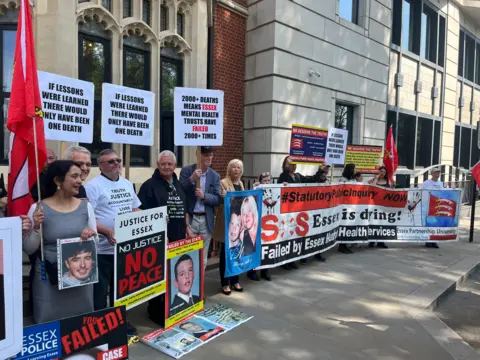 RICHARD DANIEL/BBC
RICHARD DANIEL/BBCCounsel to the inquiry, Nicholas Griffin KC, said: “We have been unimpressed with a significant number of requests for deadline extensions… and the number of occasions where providers have not given the material expressly asked for.”
He said there were problems with the condition of paper records, “missing documents” and providers, including private ones, sending information late.
Mr Griffin said it was a criminal offence to suppress, conceal, alter, or destroy relevant evidence and said providers should be properly resourced to respond to the inquiry.
He said the inquiry should not be delayed because of it.
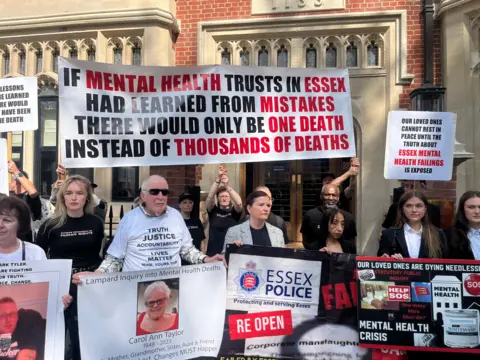 RICHARD DANIEL/BBC
RICHARD DANIEL/BBCThe original government investigation into the deaths of inpatients stalled after only 11 out of 14,000 staff agreed to take part.
But Mr Griffin said the inquiry was still facing barriers in the flow of information.
He said the inquiry team had asked providers and regulators for a reassurance that they would not take action against staff if they provided information to the inquiry or failed to provide it in the past.
He said almost all, including the largest providers, declined to give such undertakings and said the inquiry was reflecting on what further steps to take.
Over the next three weeks, Baroness Lampard will hear from care regulators, experts, and the chief executive of the Essex Partnership NHS University Trust (EPUT).
She said she would confront difficult topics “head on” and promised to keep those affected at the “heart of the inquiry,” adding that she wanted to make “lasting, positive recommendations to improve mental healthcare” across England.
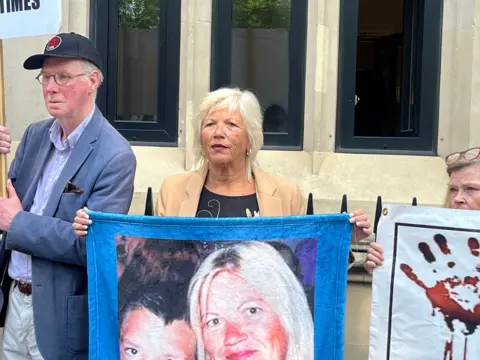 RICHARD DANIEL/BBC
RICHARD DANIEL/BBCMelanie Leahy, whose 20-year-old son Matthew died under NHS care, was joined by fellow campaigners outside the hearing at Arundel House.
She said: “It’s been years of heartbreak, unanswered questions and fighting just to be heard.”
Ms Leahy, who campaigned for more than a decade for an inquiry, said it was a real chance to get the truth.
“At Matthew’s inquest, they [those in charge of EPUT] walked out of the back door and didn’t speak to anybody, let’s bring them out now.”
Campaigners and lawyers acting for bereaved families have alleged mental health services are still unsafe.
It is understood the inquiry team has referred ongoing concerns to regulators.
Mr Griffin said they would be looking at what recent inquests and deaths may reveal about the extent to which the issues in Essex “are really being addressed”.
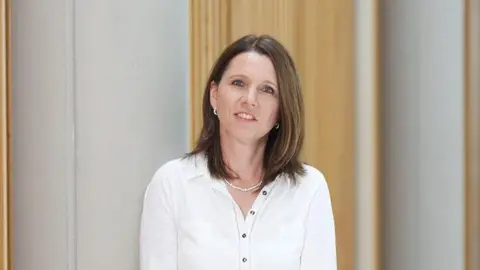 Nottingham Trent University
Nottingham Trent UniversityHe said Dr Emma Ireton, an associate professor from Nottingham Law School, would be producing a report on how the inquiry’s final recommendations will be implemented.
EPUT chief executive Paul Scott has apologised for deaths under his trust’s care.
He said: “As the inquiry progresses, there will be many accounts of people who were much loved and missed over the past 24 years and I want to say how sorry I am for their loss.”
Evidence is due to continue until 15 May and will resume in July.
Baroness Lampard is expected to produce her recommendations for change in 2027.
#Essex #mental #health #inquiry #chair #vows #seek #truth
